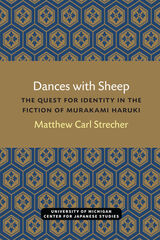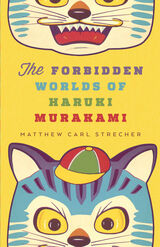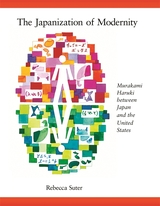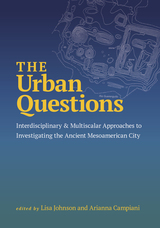

In an “other world” composed of language—it could be a fathomless Martian well, a labyrinthine hotel or forest—a narrative unfolds, and with it the experiences, memories, and dreams that constitute reality for Haruki Murakami’s characters and readers alike. Memories and dreams in turn conjure their magical counterparts—people without names or pasts, fantastic animals, half-animals, and talking machines that traverse the dark psychic underworld of this writer’s extraordinary fiction.
Fervently acclaimed worldwide, Murakami’s wildly imaginative work in many ways remains a mystery, its worlds within worlds uncharted territory. Finally in this book readers will find a map to the strange realm that grounds virtually every aspect of Murakami’s writing. A journey through the enigmatic and baffling innermost mind, a metaphysical dimension where Murakami’s most bizarre scenes and characters lurk, The Forbidden Worlds of Haruki Murakami exposes the psychological and mythological underpinnings of this other world. Matthew Carl Strecher shows how these considerations color Murakami’s depictions of the individual and collective soul, which constantly shift between the tangible and intangible but in this literary landscape are undeniably real.
Through these otherworldly depths The Forbidden Worlds of Haruki Murakami also charts the writer’s vivid “inner world,” whether unconscious or underworld (what some Japanese critics call achiragawa, or “over there”), and its connectivity to language. Strecher covers all of Murakami’s work—including his efforts as a literary journalist—and concludes with the first full-length close reading of the writer’s newest novel, Colorless Tsukuru Tazaki and His Years of Pilgrimage.

Murakami Haruki is perhaps the best-known and most widely translated Japanese author of his generation. Despite Murakami’s critical and commercial success, particularly in the United States, his role as a mediator between Japanese and American literature and culture is seldom discussed.
Bringing a comparative perspective to the study of Murakami’s fiction, Rebecca Suter complicates our understanding of the author’s oeuvre and highlights his contributions not only as a popular writer but also as a cultural critic on both sides of the Pacific. Suter concentrates on Murakami’s short stories—less known in the West but equally worthy of critical attention—as sites of some of the author’s bolder experiments in manipulating literary (and everyday) language, honing cross-cultural allusions, and crafting metafictional techniques. This study scrutinizes Murakami’s fictional worlds and their extraliterary contexts through a range of discursive lenses: modernity and postmodernity, universalism and particularism, imperialism and nationalism, Orientalism and globalization.
By casting new light on the style and substance of Murakami’s prose, Suter situates the author and his works within the sphere of contemporary Japanese literature and finds him a prominent place within the broader sweep of the global literary scene.
READERS
Browse our collection.
PUBLISHERS
See BiblioVault's publisher services.
STUDENT SERVICES
Files for college accessibility offices.
UChicago Accessibility Resources
home | accessibility | search | about | contact us
BiblioVault ® 2001 - 2025
The University of Chicago Press









